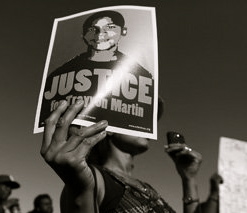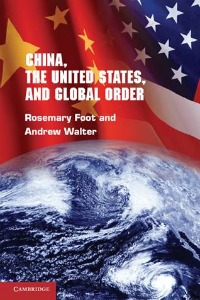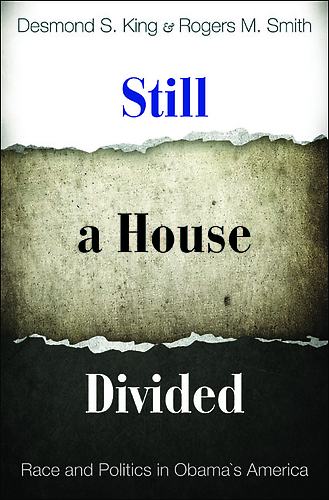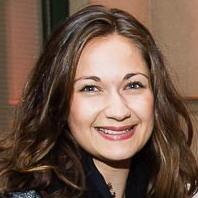
Religion, Spirituality and Global Governance: an International Interdisciplinary Conference
On Friday, May 4 and Saturday, May 5, the University of Oxford Centre for International Studies (CIS) hosted an international interdisciplinary conference, jointly convened by the Academic Council on the United Nations System (ACUNS), and the Centre for Sustainable Development & International Peace at the University of Denver. Featuring a variety of scholars and leaders in the field of peace and conflict studies, international development and theology, the conference aimed to “deepen the understanding of the paradoxical role of religion and spirituality in the contemporary social and political context, and its potential to shape global governance.” The first panel, entitled “Religion, Civilization and Globalization”, began with a presentation by Katharine Marshall, Senior Fellow at the Berkley Centre for Religion, Peace and World …

Questions of Inclusion: What the Trayvon Martin Case Reveals about Race in America
A Conversation with Rakim Brooks Background: On February 26, 2012, 17 year-old Trayvon Martin was shot and killed as he was walking home to his father’s house in a community in Sanford, Florida. Unarmed, Martin was seen carrying an iced tea and a bag of Skittles candy, when 28 year-old George Zimmerman opened fire on the boy, resulting in his death. Until yesterday, under the auspices of self defence and through the protection of Florida’s “Stand Your Ground” law, Zimmerman had not been arrested for a crime that the civil rights community insists was motivated by racial prejudice. Public outrage regarding the handling of the incident (no doubt including the decision not to arrest Zimmerman) resulted in the resignation of …

Paralysis or Metamorphosis? A debate on the Eurozone Crisis and its implications for the EU
On Wednesday, 29 February, 2012, the Oxford European Studies Centre hosted two esteemed guests: Daniel Cohn-Bendit, co-president of the European Greens in the European Parliament and renowned activist of the French left; and Edouard Gaudot, researcher for the European Greens and member of the Spinelli Group. The event offered a lively discussion regarding the ramifications of the European crisis, particularly in light of recent events regarding the Greek debt. Mr. Cohn-Bendit began the debate by characterizing the current climate as “a turning point in European history, because the European Union is confronted with one of its most serious crises, caused by the financial crisis”. In reference to its efforts to grapple with economic catastrophe, he contended that the EU is …

China, the United States, and Global Order: An Interview with Professor Rosemary Foot
Rosemary Foot is a Professor of International Relations and John Swire Senior Research Fellow at St Antony’s College, Oxford. She has been a celebrated China scholar since completing her doctorate at the London School of Economics on Sino-Soviet relations and West Asia. Here, Professor Foot takes a moment to speak with Politics in Spires regarding her most recent book. Congratulations, your latest book, China, the United States, and Global Order has been praised by Foreign Policy Magazine as one of the 23 Essential Readings of 2011. Could we begin with you telling us a bit about the efforts behind this work? The book was a collaborative effort.* My co-author [Andrew Walter] is a specialist in international political economy, and I …

Towards a Realizable Progressive Politics: A Q&A with Dr. Sophie Heine
Dr. Sophie Heine is a visiting scholar at the University of Oxford Department of Politics and International Relations, a Research Fellow at the Universtité Libre de Bruxelles and FNRS and a Wiener-Anspach Foundation Scholar; her research engages with identity politics and ideology in contemporary Europe. Here, she takes a moment to speak with Politics in Spires regarding the Occupy protests of 2011, and offers a preview of her forthcoming book. I. Your recent work, Oser penser à gauche (“Dare to think to the left”), argues that contemporary progressive politics must redefine its underpinning ideology and articulate a coherent, emancipatory platform for change. This analysis proves particularly relevant to the waves of “Occupy” protests that began in New York in October …

“The Rights of Journalism and the Needs of Audiences”: Onora O’Neill on the Rise of Corporate Media
On 21 November 2011, the Oxford Reuters Institute for the Study of Journalism hosted its annual Memorial Lecture at St. Anne’s College, exploring “The Rights of Journalism and the Needs of Audiences.” The topic shed light on the phone hacking scandals that occurred last summer, shaking both media and consumers alike, and culminating with the closure of Rupert Murdoch’s News of the World. The Institute had the distinct pleasure of hosting renowned philosopher and former President of the British Academy, Baroness Onora O’Neill, to deliver the lecture. O’Neill framed her talk around the complicated relationship between the rights to privacy and free press, emphasising that the debate between these two key features of democratic societies fails to adequately show how …

The Politics of Race: Book Launch for “Still a House Divided” by Desmond S. King & Rogers M. Smith
On Friday, 11 November, 2011, Nuffield College hosted a panel of scholars in the field of American politics, identity, and race, to discuss the September 2011 publication of Still a House Divided: Race and Politics in Obama’s America by Desmond S. King and Rogers M. Smith. The dialogue that ensued engaged the authors with a series of questions surrounding the book’s central thesis: despite the real progress in racial equality achieved by the 1960s civil rights legislation, the United States political institution has been caught in between two modes of conceptualizing, and enacting policy, about race— both of which have failed to close the tremendous gap in racial disparities in social and economic welfare that are a legacy of American …

Political Paralysis: Reflections on the Republican Party’s Hold on America
Big vs. small government, Blue vs. Red states, the Union vs. the Confederacy: each of these pairings represents different iterations on a recurring theme in the history of American politics. Now, more than ever in recent memory, these competing ideologies are emerging as polar opposites that threaten to drive the US political establishment into a stalemate. For progressives, there is the warranted fear that this deadlock is quickly devolving into a zero-sum game, in which the extreme conservatism of the Right has already won. As I watched the Tea Party-sponsored Republican debate, I was disturbed by the lack of compassion for the disadvantaged touted by several of the candidates, Ron Paul in particular. Bolstered by applause from the audience, …










